
Elizabeth Horwath
Elizabeth.Horwath@Pennmedicine.upenn.eduD007 Richards Building| 3700 Hamilton WalkPerelman School of Medicine | University of PennsylvaniaPhiladelphia, PA 19104

Allen Fu
Allen.Fu@Pennmedicine.upenn.eduD002 Richards Building | 3700 Hamilton WalkPerelman School of Medicine | University of PennsylvaniaPhiladelphia, PA 19104

Anna-Lena Dorfschmidt
Anna-Lena.Dorfschmidt@Pennmedicine.upenn.eduB505 Richards Medical Research Laboratories | 3700 Hamilton WalkPerelman School of Medicine | University of PennsylvaniaPhiladelphia, PA 19104

Bailey Spangler
Bailey.Spangler@Pennmedicine.upenn.eduD001 Richards Building | 3700 Hamilton WalkPerelman School of Medicine | University of PennsylvaniaPhiladelphia, PA 19104

Chenxi (Chelsea) Yuan
Chenxi.Yuan@Pennmedicine.upenn.edu529A Blockley Hall | 423 Guardian DrivePerelman School of Medicine | University of PennsylvaniaPhiladelphia, PA 19104

Vasiliki Tassopoulou
Vasiliki.Tassopoulou@Pennmedicine.upenn.edu605E Goddards Building | 3700 Hamilton WalkPerelman School of Medicine | University of PennsylvaniaPhiladelphia, PA 19104

Maddie Seitz
madeleine.seitz@pennmedicine.upenn.edu2nd Floor Blockley Hall | 423 Guardian DrivePerelman School of Medicine | University of PennsylvaniaPhiladelphia, PA 19104

Zheng Ren
zheng.ren@pennmedicine.upenn.eduD008 Richards Building | 3700 Hamilton WalkPerelman School of Medicine | University of PennsylvaniaPhiladelphia, PA 19104

Fang (Amy) Liu
fang.liu1@pennmedicine.upenn.eduD011 Richards Building | 3700 Hamilton WalkPerelman School of Medicine | University of PennsylvaniaPhiladelphia, PA 19104

Fengling Hu
Fengling.Hu@pennmedicine.upenn.eduD012 Richards Building | 3700 Hamilton WalkPerelman School of Medicine | University of PennsylvaniaPhiladelphia, PA 19104
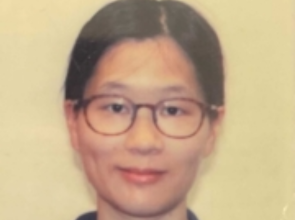
Christina Chen
Christina.Chen@pennmedicine.upenn.eduD004 Richards Building | 3700 Hamilton WalkPerelman School of Medicine | University of PennsylvaniaPhiladelphia, PA 19104

Elizabeth Sweeney, PhD
Elizabeth.Sweeney@pennmedicine.upenn.edu215-746-8603222 Blockley Hall | 423 Guardian DrivePerelman School of Medicine | University of PennsylvaniaPhiladelphia, PA 19104

Russell T. Shinohara, PhD
Dr. Shinohara’s methodological research centers on the assessment of structural and functional changes in the brain throughout the lifespan and in neurological, psychiatric, and developmental disorders. He is interested in […]

Haochang Shou, PhD
Dr. Shou’s methodological research focuses mainly on developing novel functional data analysis and machine learning models for multimodal and longitudinal imaging measures, wearable computing sensor data, and assessing biomarker reproducibility. […]

Kristin A. Linn, PhD
Dr. Linn’s methodological research addresses barriers to incorporating complex, high-dimensional data into models for personalized medicine and biomarker development using neuroimaging data. As a co-investigator, she provides biostatistical leadership on […]

Quy Cao, PhD
Dr. Cao has established himself as a leader in the field of collaborative analytics, particularly in high-dimensional and imaging science. He has worked on problems in the study of the […]

Welcoming our new Data Analyst, Elizabeth Horwath!
Dr. Horwath is a recent graduate of Temple University with a PhD in Psychology. She completed her undergraduate degree in Psychology at Alfred University in December 2017. She will be […]

Russell Shinohara Selected for the 2023 Mortimer Spiegelman Award
Russell “Taki” Shinohara, PhD was selected as the 2023 Mortimer Spiegelman Award recipient by the Applied Public Health Statistics Section of the American Public Health Association (APHA). Each year, the APHA […]
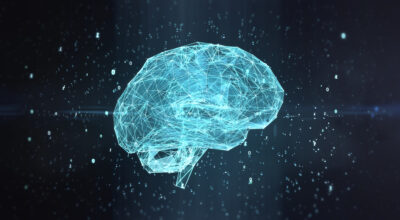
Leveraging machine learning predictive biomarkers to augment the statistical power of clinical trials with baseline magnetic resonance imaging
A key factor in designing randomized clinical trials is the sample size required to achieve a particular level of power to detect the benefit of a treatment. Sample size calculations […]
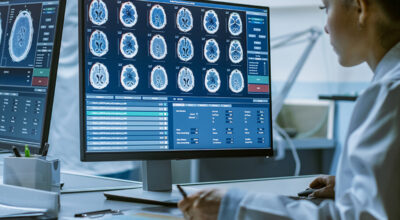
Removal of Scanner Effects in Covariance Improves Multivariate Pattern Analysis in Neuroimaging Data
To acquire larger samples for answering complex questions in neuroscience, researchers have increasingly turned to multi-site neuroimaging studies. However, these studies are hindered by differences in images acquired across multiple […]
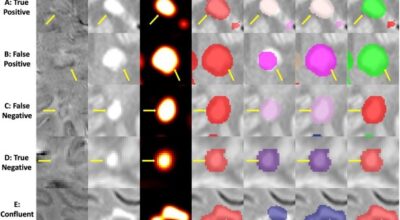
Fully Automated Detection of Paramagnetic Rims in Multiple Sclerosis Lesions on 3T Susceptibility-Based MR Imaging
The presence of a paramagnetic rim around a white matter lesion has recently been shown to be a hallmark of a particular pathological type of multiple sclerosis lesion. Increased prevalence […]
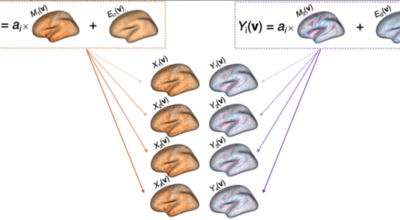
A simple permutation-based test of intermodal correspondence
While many findings in neuroimaging studies pertain to multiple imaging modalities, statistical methods underlying intermodal comparisons have varied. In our recently published paper in Human Brain Mapping, we propose the […]
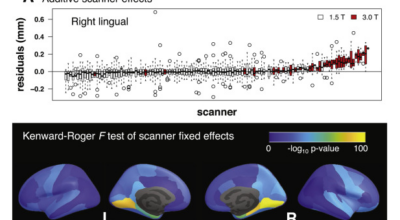
Longitudinal ComBat: A method for harmonizing longitudinal multi-scanner imaging data
While aggregation of neuroimaging datasets from multiple sites and scanners can yield increased statistical power, it also presents challenges due to systematic scanner effects. This unwanted technical variability can introduce […]
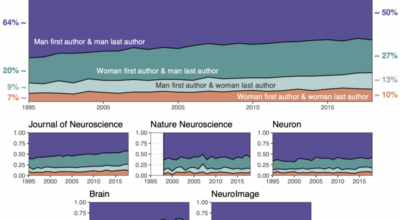
The extent and drivers of gender imbalance in neuroscience reference lists
Like many scientific disciplines, neuroscience has increasingly attempted to confront pervasive gender imbalances within the field. While much of the conversation has centered around publishing and conference participation, recent research […]
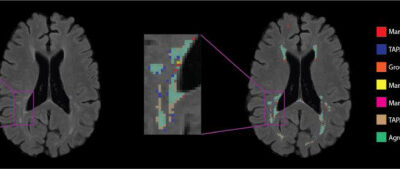
Automatic Threshold Detection for Classification of Lesions
Total brain white matter lesion volume is the most widely established MRI outcome measure in studies of multiple sclerosis. To estimate white matter lesion volume, there are a number of […]
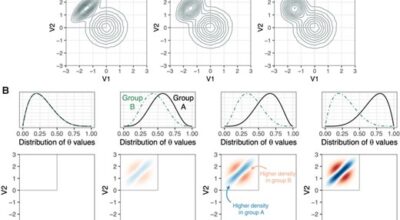
A local group differences test for subject-level multivariate density neuroimaging outcomes
A great deal of neuroimaging research focuses on voxel-wise analysis or segmentation of damaged tissue, yet many diseases are characterized by diffuse or non-regional neuropathology. In simple cases, these processes […]
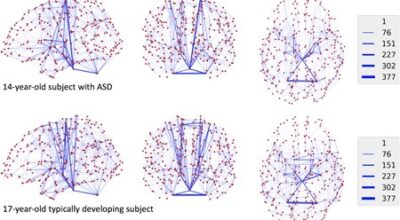
Distance-Based Analysis of Variance for Brain Connectivity
The field of neuroimaging dedicated to mapping connections in the brain is increasingly being recognized as key for understanding neurodevelopment and pathology. Networks of these connections are quantitatively represented using […]
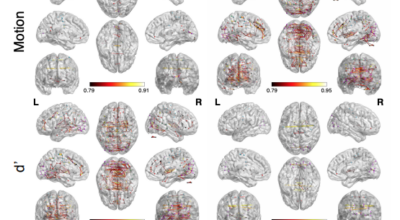
Robust Spatial Extent Inference with a Semiparametric Bootstrap Joint Inference Procedure
Spatial extent inference (SEI) is widely used across neuroimaging modalities to adjust for multiple comparisons when studying brain-phenotype associations that inform our understanding of disease. Recent studies have shown that […]
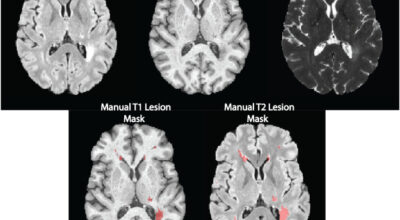
Detecting Black Holes in Multiple Sclerosis
Magnetic resonance imaging (MRI) is crucial for in vivo detection and characterization of white matter lesions (WML) in multiple sclerosis (MS). The most widely established MRI outcome measure is the […]
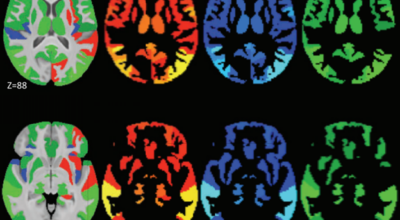
Faster family-wise error control for neuroimaging with a parametric bootstrap
In neuroimaging, hundreds to hundreds of thousands of tests are performed across a set of brain regions or all locations in an image. Recent studies have shown that the most […]
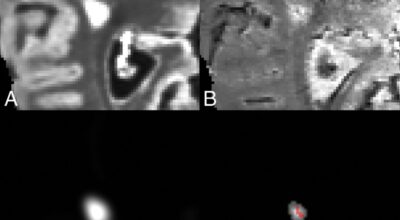
Automated Integration of Multimodal MRI for the Probabilistic Detection of the Central Vein Sign in White Matter Lesions
The central vein sign is a promising MR imaging diagnostic biomarker for multiple sclerosis. Recent studies have demonstrated that patients with MS have higher proportions of white matter lesions with […]
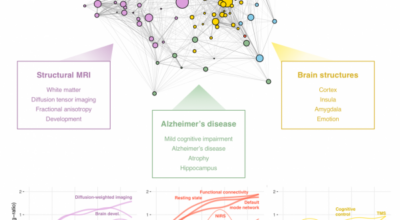
The landscape of NeuroImage-ing research
As the field of neuroimaging grows, it can be difficult for scientists within the field to gain and maintain a detailed understanding of its ever-changing landscape. While collaboration and citation […]
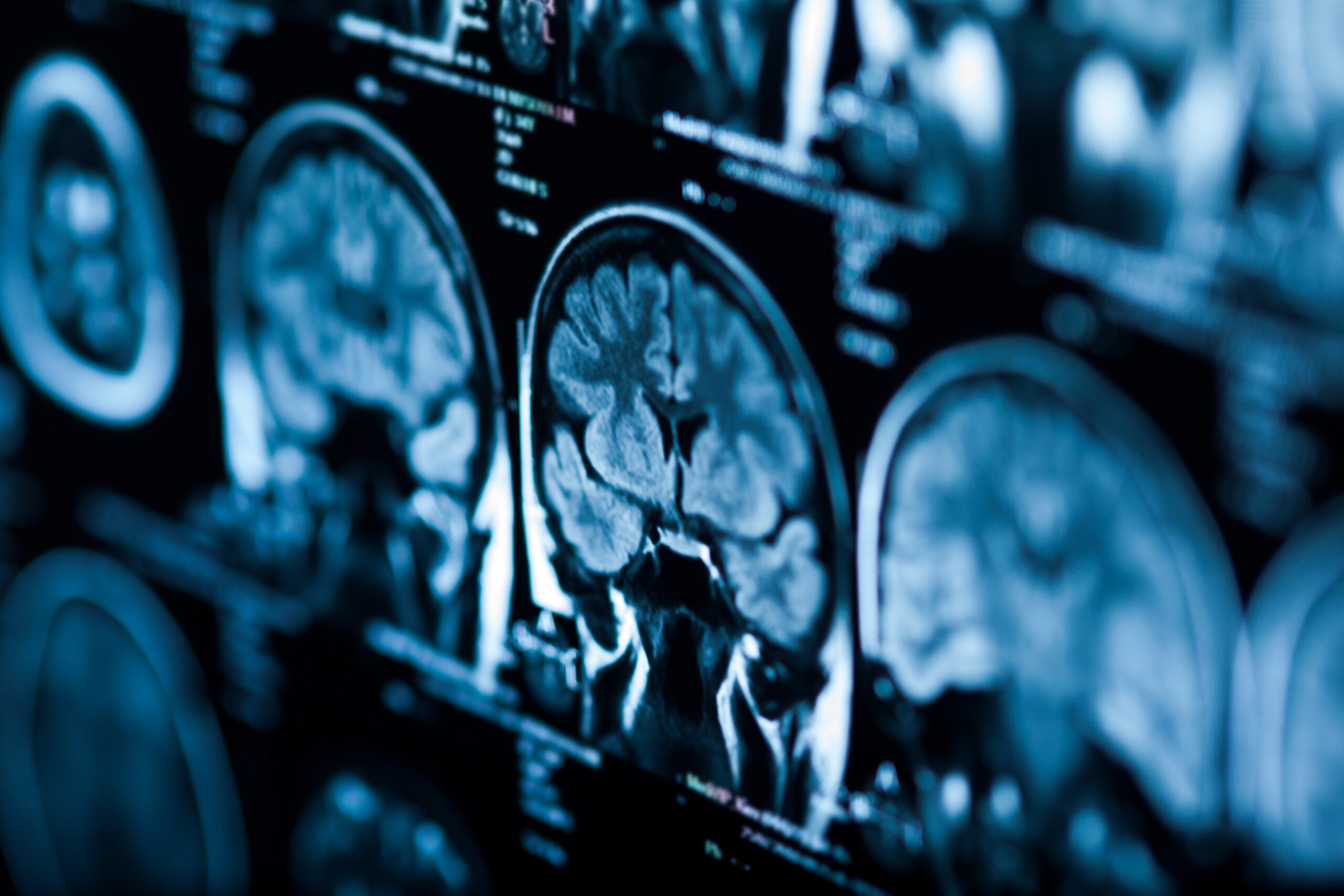
Interpretable High-Dimensional Inference Via Score Projection With an Application in Neuroimaging
In the fields of neuroimaging and genetics, a key goal is testing the association of a single outcome with a very high-dimensional imaging or genetic variable. Often, summary measures of […]

Detecting Multiple Sclerosis Lesions via Intermodal Coupling Analysis
Magnetic resonance imaging (MRI) is crucial for in vivo detection and characterization of white matter lesions (WML) in multiple sclerosis. While WML have been studied for over two decades using […]
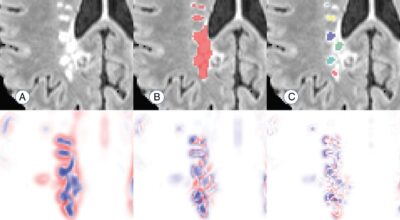
An Automated Statistical Technique for Counting Distinct Multiple Sclerosis Lesions
This study introduces a novel technique for counting pathologically distinct lesions using cross-sectional data, and demonstrates its ability to recover obscured longitudinal information. The proposed count works by incorporating information […]
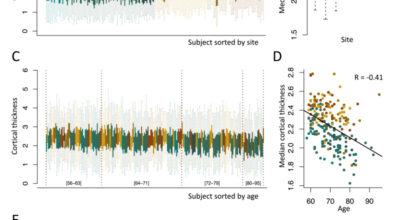
Harmonization of cortical thickness measurements across scanners
With the proliferation of multi-site neuroimaging studies, there is a greater need for handling non-biological variance introduced by differences in MRI scanners and acquisition protocols. Such unwanted sources of variation, […]
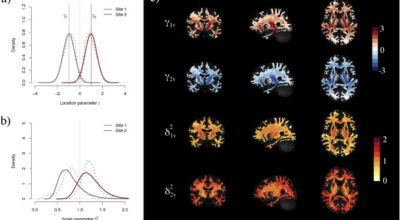
Harmonization of multi-site diffusion tensor imaging data
Diffusion tensor imaging (DTI) is a well-established magnetic resonance imaging (MRI) technique used for studying microstructural changes in the white matter. As with many other imaging modalities, DTI images suffer […]
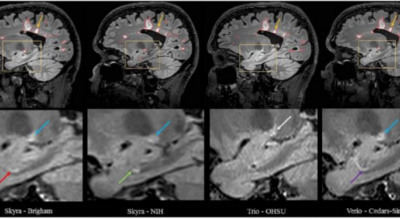
Volumetric Analysis from a Harmonized Multisite Brain MRI Study of a Single Subject with Multiple Sclerosis
MR imaging can be used to measure structural changes in the brains of individuals with multiple sclerosis and is essential for diagnosis, longitudinal monitoring, and therapy evaluation. The North American […]
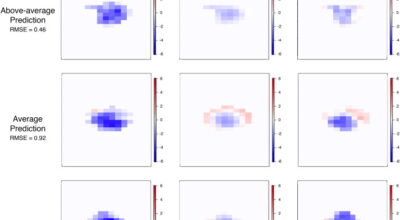
Predicting Degree and Spatial Pattern of MS Lesion Tissue Recovery
PREVAIL: In this work, our lab developed a model for predicting the degree and spatial pattern of MS lesion tissue recovery. The model is based solely on lesion presentation at […]